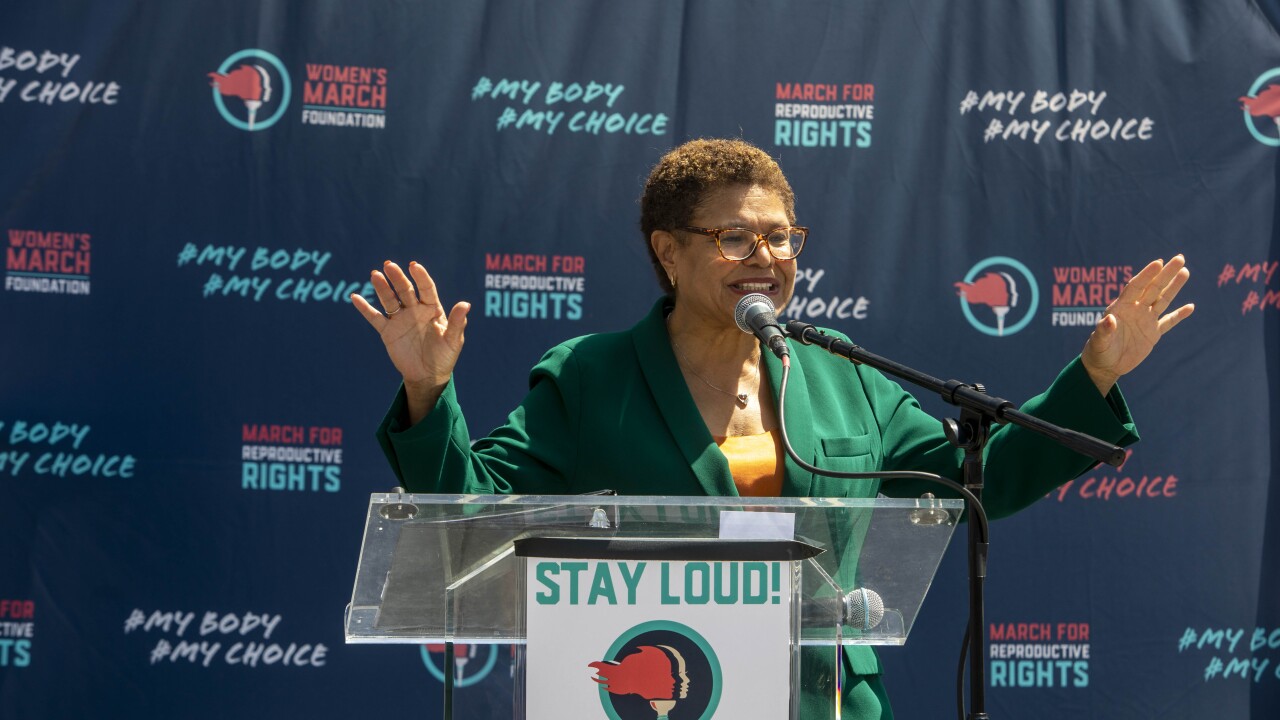SOUTH BEND, Ind. — St. Louis Federal Reserve Bank Pres. James Bullard Thursday night expressed his opposition to QE3 saying he would have voted against it, instead preferring more evidence that the global slowdown was affecting the domestic economy.
Bullard, a non-voting FOMC member this year, was the keynote speaker at a lecture series at Notre Dame.
"I would have voted against QE3 based on the idea that we did not have a solid case to make at this juncture," Bullard told the press after his speech.
Bullard argued "We already have low financial stress and low interest rates," Furthermore, equity levels remain high, "which exudes optimism".
"There seems to be a lot of factors that suggested we could wait," Bullard continued.
Acknowledging the recession in Europe, Bullard said, "I am concerned about a global slowdown but I would have liked to see more evidence that was happening here before we went ahead."
Earlier Bullard told the audience, the "Committee did make a big move at the last meeting" speaking of its vote for more quantitative easing, the purchase $40 billion agency MBS per month for an open ended period of time.
The Fed will continue Operation Twist until year-end and will reinvest MBS paydowns. The Fed estimated it will buy $85 billion long-term bonds per month, a bit more than the market expected, until it downspeeds after Op Twist concludes. The Fed also extended its forward guidance to "at least through mid-2015" from late 2014.
However, Bullard was not all negative on QE3. "I liked some things about the way we did this because we are doing it on a meeting by meeting basis. I think that is a better approach," he said, than the sequence of decisions prior to that.
Bullard told the media that while the rally and narrowing in MBS markets was "interesting," it often takes weeks or months for the markets to react to QE. "This certainly happened during QE2," he said.
Bullard told the audience that one objective of the Fed's efforts is to "get better performance in the housing market," Bullard said adding that it "seems as though housing has ceased its decline."
Bullard did note that inflation expectations, "moved up on announcement" but added "it bears watching."
"We have room to move on inflation, PCE is pretty low and core is below target, CPI is about at target. We have a little room now, but not as much as in 2010," Bullard told reporters.
"I am hoping for 2% growth this year and stronger than 3% in 2013," Bullard said, adding that "headwinds will gradually dissipate."
Bullard acknowledged recent and profound changes in labor markets and added that the persistent weakness is a direct result in the collapse of the housing bubble.
The "jury is still out," on whether there has been a structural changes in the labor market noting the recent trend of workers leaving the labor force. "This has been rather significant," Bullard told the audience, that people are leaving the labor force.
Bullard told the press his opposition to using unemployment as a measure for monetary policy, noting that "it can be fickle."
"I would not tie the committee directly to the unemployment rate. I prefer the qualitative approach to this," he said.
Bullard also told the media that it is realistic to assume that ultimately Congress will agree on a deal to resolve the fiscal cliff.
Market News International is a real-time global news service for fixed-income and foreign exchange market professionals. See





